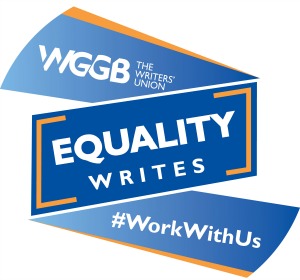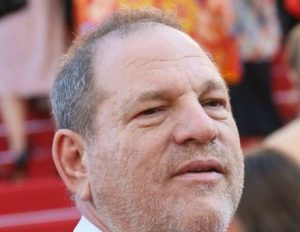The Television and Screen Writers’ Guild (later to be named the Screen Writers’ Guild and the Writers’ Guild of Great Britain) is born. It operates from a basement in Harley Street and originates from two predecessor organisations – the British Screen and Television Writers’ Association and the Screen Writers’ Association (HRH Duke of Edinburgh is pictured on the bottom right at the 21st anniversary of the Screen Writers’ Association in 1958).
Harley Street photo: Shutterstock.com/Billy Barton
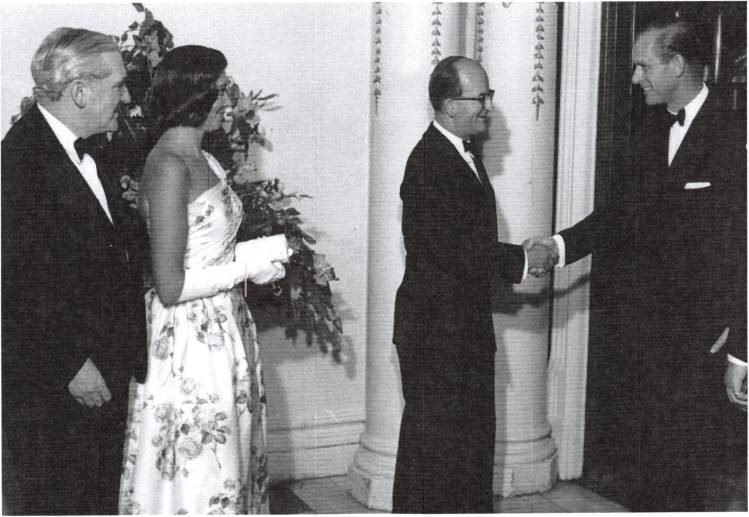
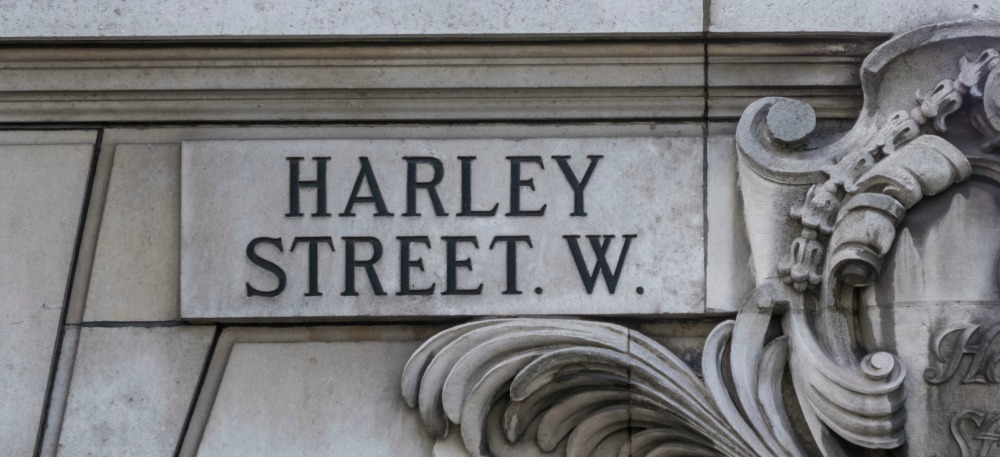
Chair of the then Screenwriters’ Guild Ted Willis signs the first national minimum terms agreement for writers in the UK, laying down basic fees for television drama. Another agreement follows in 1962, guaranteeing a minimum fee of £2,000 for a feature film (the signing of the agreement is pictured below left).
Over the years many agreements follow, not just in TV and film, but in theatre and radio, too. That same year the union launches its first annual Awards honouring the cream of British writing (Hollywood actress Goldie Hawn is pictured below right with Dad’s Army writers David Croft and Jimmy Perry after she presented them with Best Comedy Award in 1970).
Photo of Goldie Hawn, David Croft and Jimmy Perry: Evening Standard/Hulton Archive/Getty Images
.
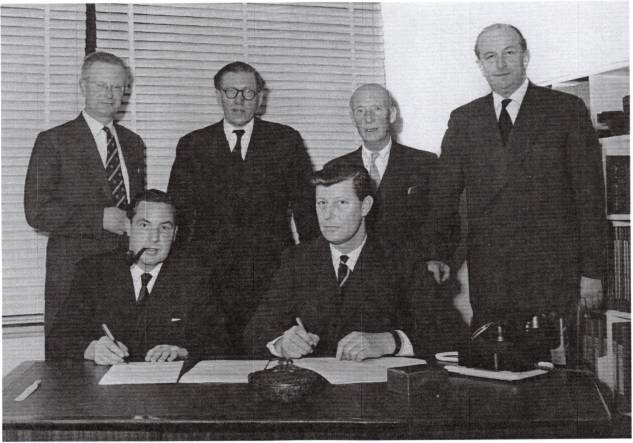
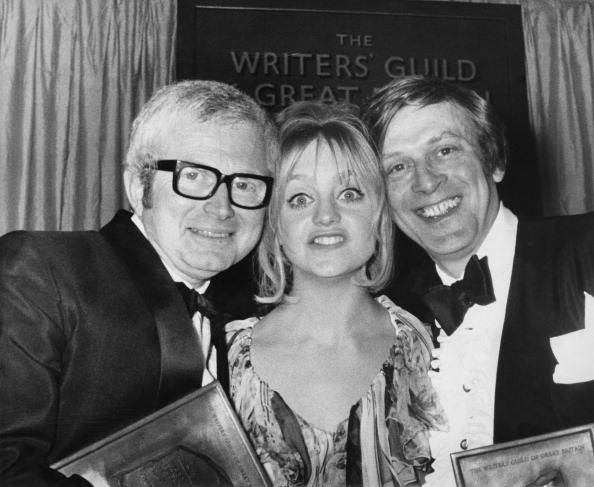
The Marine Offences Act outlaws offshore pirate radio stations like Caroline (below left), which are swiftly replaced by legitimate new local radio stations and a whole new round of battles for WGGB. For example, Radio Brighton announces that it will not be paying for any written radio material and instead will simply offer a prize for the best 20-minute radio play.
The rise of commercial radio and independent radio production companies will continue to keep the union’s radio negotiators on their toes, as will the development of digital platforms (WGGB will negotiate rates for podcast writers with the BBC in 2018). As Jonathan Myerson, Chair of the WGGB Radio and Audio Committee in 1998, told members in those areas: “We are at the barricades for you.”
Photos, left: Shutterstock.com/Philip Bird; right: Shutterstock.com/blackzheep


Union official Eric Paice (below right) describes it as the lousiest year in the history of the union. Rampant inflation is leading to wage freezes, and lacking the industrial clout of miners, postal or car workers, writers’ earnings have fallen behind most sections of the community. Widespread industrial action would culminate in the winter of discontent.
Photo, right: Flickr/AlanDenney
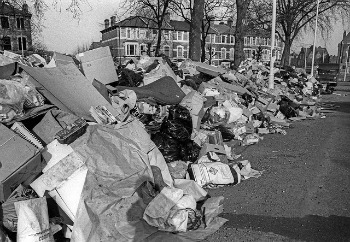
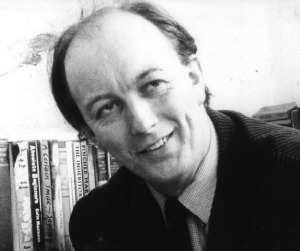
The Public Lending Right Act is passed, giving British authors a legal right to receive payment for the free lending of their books. WGGB members, including Maureen Duffy (pictured below, left) and Brigid Brophy, play a major role in the long-running campaign for PLR.
Photo, right: Sutterstock.com/Annette Shaff
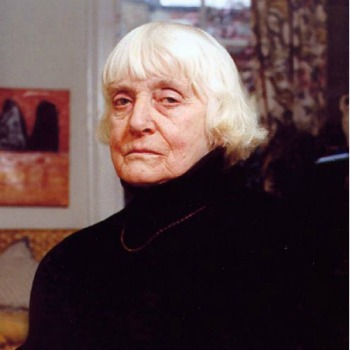

WGGB successfully campaigns against the Peacock Report, which recommends the scrapping of the television Licence Fee. The union will go on to support public funding of the BBC as it faces charter renewal in the future, for example, in the BBC Love It Or Lose it campaign of 2015.
Photo: Shutterstock.com/Twocoms
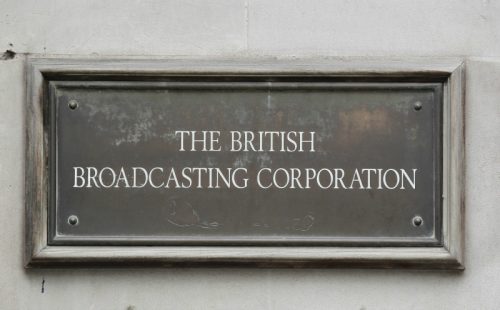
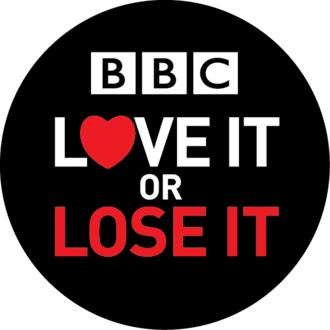
WGGB becomes one of the first organisations to lend its support to the Organisation for Lesbian and Gay Action, critics of the Section 28 amendment to the 1986 Local Government Act, which states that a local authority “shall not intentionally promote homosexuality or publish material with the intention of promoting homosexuality” or “promote the teaching in any maintained school of the acceptability of homosexuality as a pretended family relationship”. Protests (featured below, left) will continue alongside the campaign for over 15 years.
Photo, left: Creative Commons/Schmediator; right: Creative Commons Ludovic Bertron
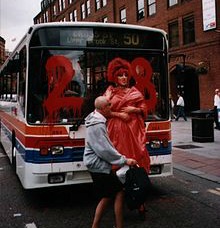
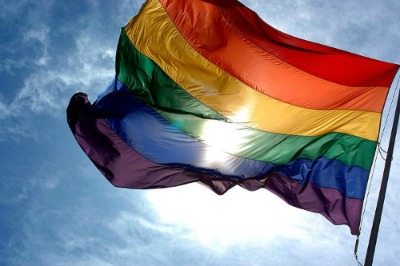
At the 1991 Writers’ Guild Awards ceremony in London Satanic Verses author Salman Rushdie makes a rare and surprise appearance during the fatwa against him to collect the Children’s Book Award (he is pictured below, left, with WGGB Chair at the time Allan Scott). The Awards are regularly frequented by special guests and celebrities, including actress Joan Collins (pictured below right with former WGGB Deputy General Secretary Anne Hogben).
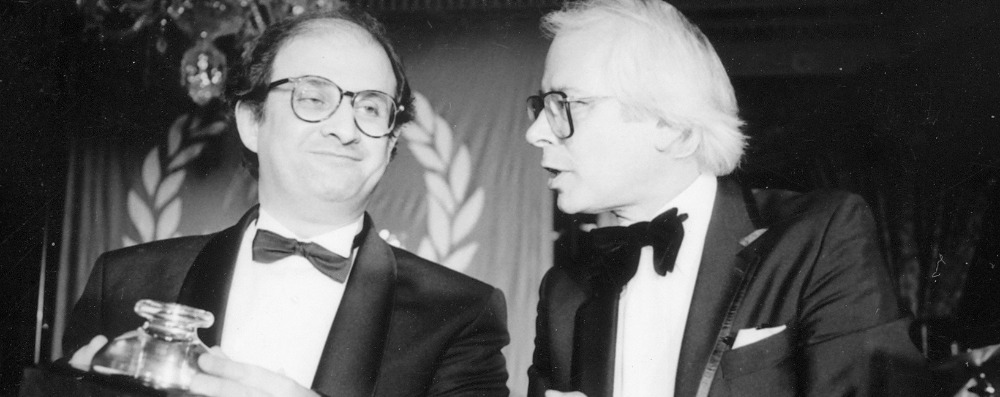
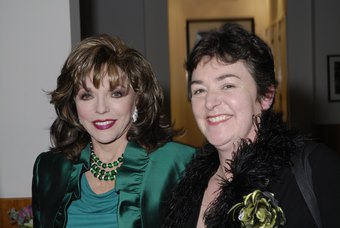
In 1997 the Theatre Writers Union merges with WGGB, resulting in greater combined negotiating power and strength in fighting the increasing cuts and threats to theatre funding.
Ten years after the merger of the two unions, a long-held ambition is achieved when a new agreement is signed with the Royal Court, RSC and National Theatre (pictured right) – including a rise in the fee paid to writers commissioned by those theatres to £10,000. The WGGB Theatre Committee will go on to take part in negotiations, campaigns and running events, including Meet the Playwrights in 2017 (pictured left).
Photo of National Theatre: Shutterstock.com/Claudio Divizia; photo of Meet the Playwrights: Em Fitzgerald
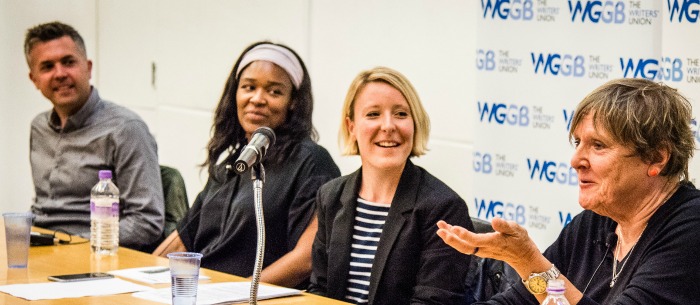
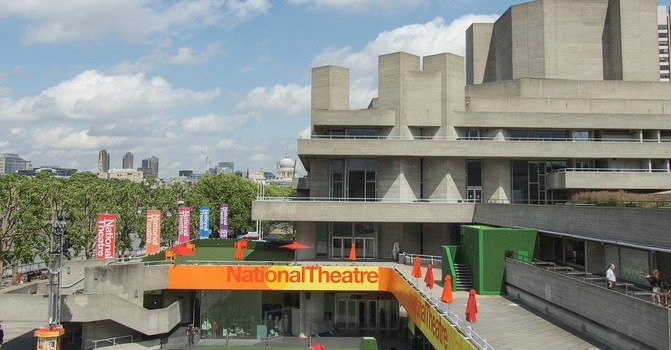
WGGB moves into the new millennium with confidence and the following years see it increase its work in the rapidly growing medium of videogames. It will go on to produce best practice guidelines for games writers and those who work with them, and stage videogames events. The 2007 Writers’ Guild Awards sees games writers honoured by the introduction of a new Best Writing in a Videogame category (one of the recent winners, Tameem Antoniades, is pictured below left).
Photo, left: Matt Writtle; right, Shutterstock.com/nhungboon


BBC Radio cancels News Huddlines, and for the first time in more than 30 years, there are now no radio comedy shows accessible to new writers. A short but highly effective campaign by WGGB results in BBC Radio accepting the need for such shows, and they develop a series of new ones to fulfil this, including Recorded For Training Purposes, The Show What You Wrote and Newsjack.
Photo, left: Shutterstock.com/Africa Studios

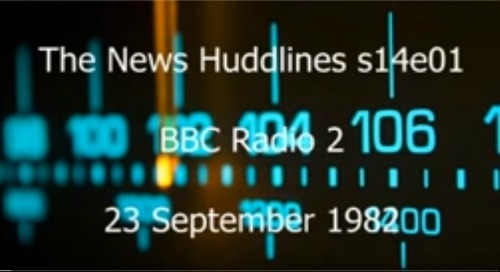
Savage cuts to the arts come thick and fast under the new Coalition Government and, at that year’s AGM, WGGB President David Edgar warns that the next 12 months are likely to “prove as, if not more, challenging than the last”. The following year WGGB is one of eight unions to launch the Lost Arts campaign and will later go on to support the In Battalions campaign to tackle the effect of Arts Council cuts on new writing in theatre.
Photo, right: Shutterstock.com/BasPhoto
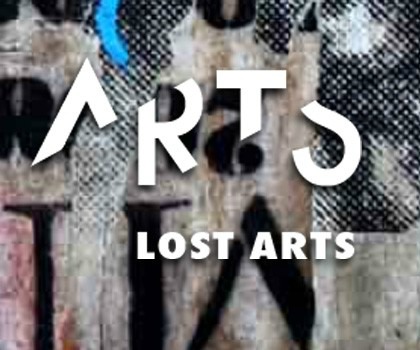
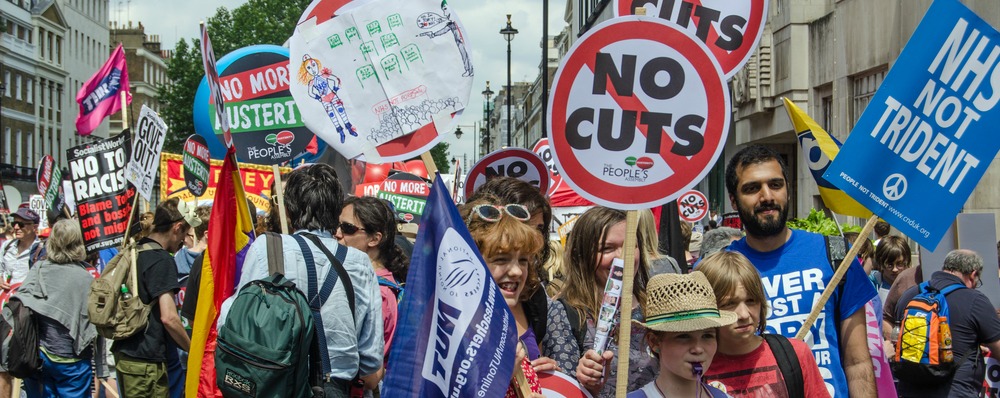
WGGB negotiates a game-changing deal with the BBC in 2012, the Digital Rights Agreement, which protects writers’ rights in the rapidly changing technological environment. Speaking about the union’s work in this area, then General Secretary Bernie Corbett says it has safeguarded writers’ rights “in the digital age” and future-proofed our “industry-leading collective agreements for at least another generation”.
Photo, right: Shutterstock.com
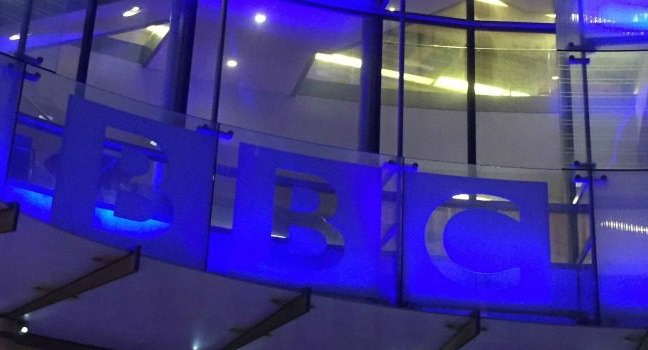

The landmark Writers Digital Payments scheme launches, guaranteeing TV writers royalties whenever their work is shown on BBC iPlayer or ITV Player.
Free is NOT an Option – a campaign against unpaid development work in film and TV – is launched the same year, with support from actress Julie Waters, film-maker Ken Loach and cross-party MPs and Peers.
Photo, left: Reece Lipman @ Chocolate Films; right: Shutterstock.com
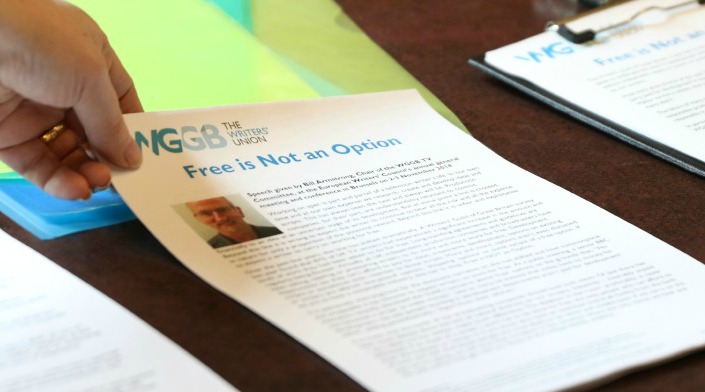
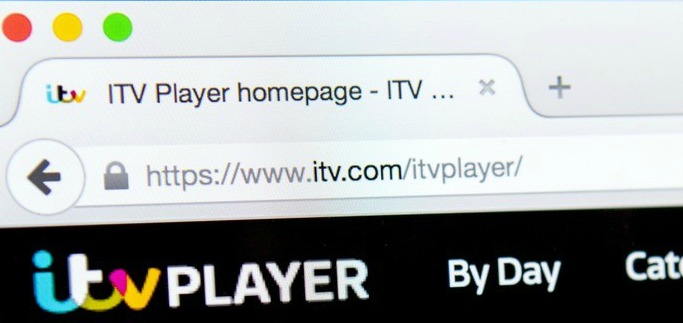
The Equality Writes campaign is launched, tackling inequality in the screen industries, after WGGB commissions a major independent report showing only 16% of film screenwriters in the UK are female, and only 14% of prime-time TV drama is written by women. That same year, the union continues to call on broadcasters to release programme-level data from their Project Diamond diversity initiative. And, in the wake of the scandal around Harvey Weinstein (pictured below, right), it joins other organisations including BFI and BAFTA to develop 8 Principles for combatting bullying and harassment.
Photo, right: Shutterstock.com
